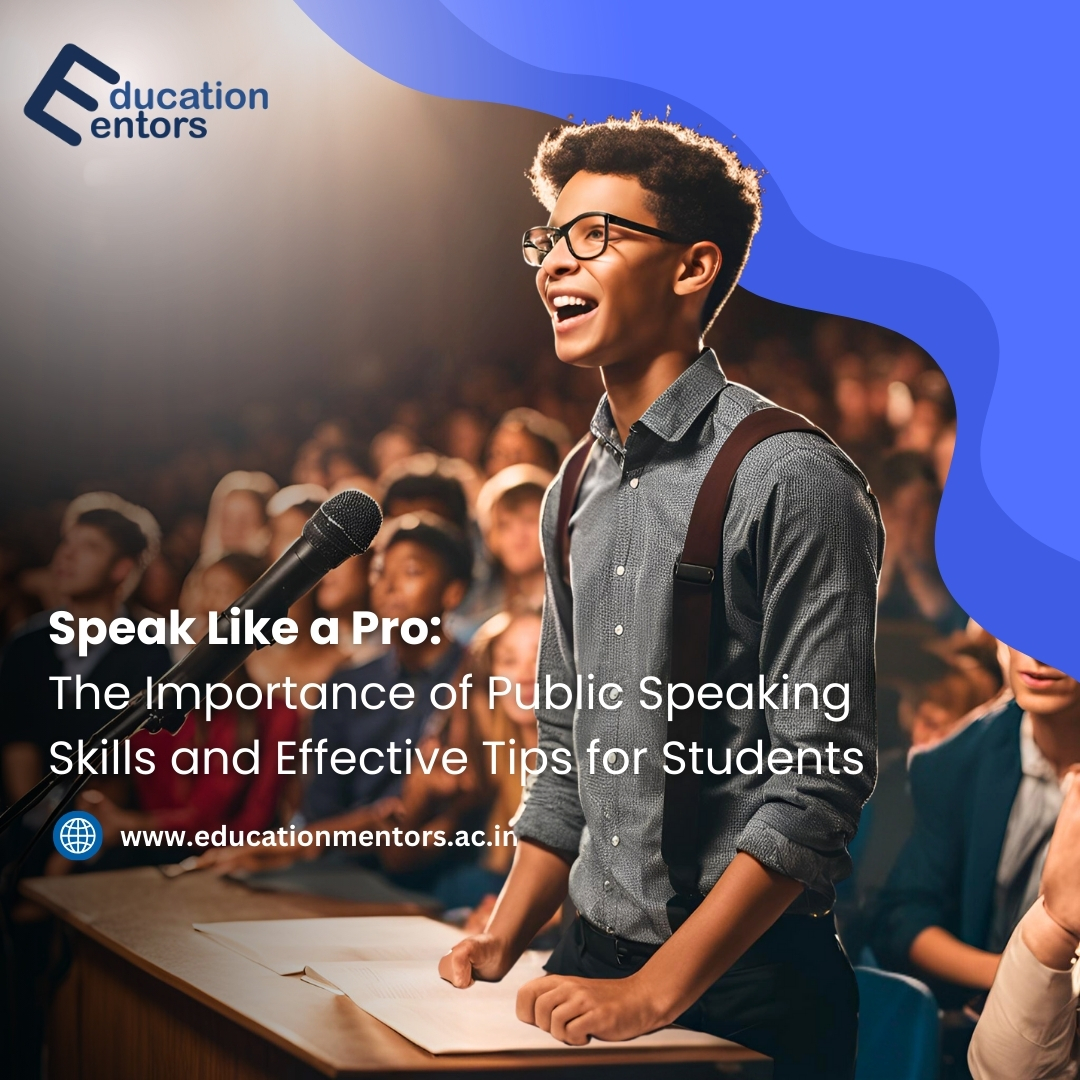
Public speaking is an essential skill that students can use throughout their lives. Whether it’s presenting a school project, participating in a debate, or later on giving a work presentation, the ability to speak confidently and clearly in front of an audience is incredibly valuable. Learning how to speak effectively can boost confidence, help build strong leadership skills, and enhance communication abilities. In this blog, we’ll explore why public speaking is important for students and provide some tips to help you speak like a pro!
Why Public Speaking Skills Matter
- Boosts Confidence Public speaking helps students gain confidence. Standing up in front of an audience and delivering a message requires courage, and with practice, it becomes easier. The confidence you gain from public speaking will also benefit you in other areas of life, like participating in group discussions or taking part in extracurricular activities.
- Enhances Communication Skills Public speaking is all about expressing your thoughts clearly and effectively. Whether you are talking to one person or an entire audience, good communication is key to making sure your message is understood. These communication skills can be applied in daily life and in your future career.
- Develops Critical Thinking When preparing a speech, you need to think critically about your topic, structure your thoughts, and organize the content in a way that makes sense. This practice helps improve problem-solving and analytical thinking skills, which are important in both academics and life situations.
- Builds Leadership Skills Effective public speaking is a hallmark of leadership. By learning how to present ideas confidently and persuasively, students can develop leadership qualities. Good leaders are often excellent communicators, and public speaking is a great way to hone these skills.
- Improves Academic Performance Many subjects and extracurricular activities involve some form of public speaking, whether it’s giving presentations, answering questions in class, or participating in discussions. Practicing public speaking can help students perform better in academics by sharpening their ability to present information clearly and thoughtfully.
Effective Public Speaking Tips for Students
- Practice, Practice, Practice The best way to improve at public speaking is by practicing regularly. Start with small audiences, like friends or family, and gradually build up to larger groups. The more you practice, the more comfortable you’ll become.
- Know Your Audience Understanding your audience is key to effective communication. Tailor your speech to the interests and needs of your audience, and make sure the language and tone are appropriate for them.
- Organize Your Thoughts Before giving a speech, plan out what you want to say. Create an outline that includes an introduction, main points, and a conclusion. Having a clear structure will help you stay on track and make your message easy to follow.
- Make Eye Contact Eye contact helps you connect with your audience and shows that you are confident. Look at different people in the audience as you speak, rather than focusing on one spot.
- Use Body Language Your body language can enhance your message. Stand up straight, use hand gestures to emphasize key points, and avoid fidgeting. Confident body language helps convey authority and keeps the audience engaged.
- Control Your Pace Speaking too quickly or too slowly can make it difficult for your audience to follow. Practice maintaining a steady pace, pausing for emphasis, and enunciating your words clearly.
- Engage with Your Audience Ask questions, tell stories, or include a bit of humor to engage your audience. An interactive speech is more interesting and memorable.
- Stay Calm and Breathe It’s normal to feel nervous before speaking in front of others. Take deep breaths before starting, and if you stumble or forget a word, don’t panic! Stay calm and continue confidently.
Conclusion
Public speaking is a valuable skill that will benefit students in school and beyond. By practicing regularly and following these tips, students can learn how to speak confidently, communicate effectively, and succeed in many areas of life. So, the next time you have an opportunity to speak in front of a group, remember—speak like a pro!
Share via:







